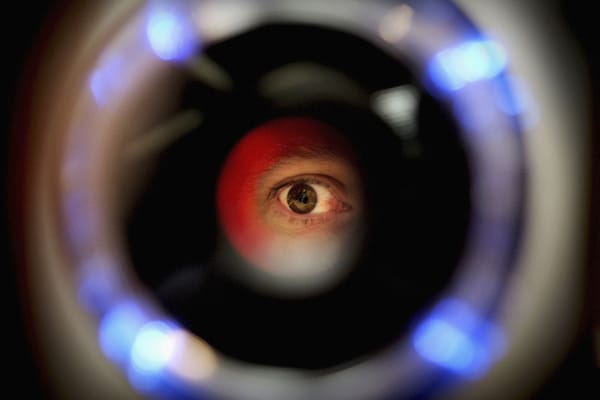Recently, as I was about to go through airport security, a saleswoman intercepted me asking if I wished to skip the security line. Intrigued, I invited her to tell me more. She shuttled me over to the CLEAR electronic kiosk and explained how the product worked. For only $180 a year, I could skip long lines at airports, sporting events, and other large gatherings. The company’s Web site explains: “Instead of using traditional ID documents, CLEAR uses your eyes and face to confirm it’s really you.” The CLEAR system uses not just an iris scan and facial recognition, but other biometrics like fingerprints, tied to demographic data you voluntarily hand over, and a link to your credit score (read the fine print on the consent checkbox). CLEAR also has a Health Pass that stores proof of vaccination, negative Covid tests, and health surveys.
CLEAR isn’t the only enterprise working at the intersection of biometric and digital authentication. Plans for digital IDs have been in the works for several years, but they gained traction during the pandemic. ID2020 is a nonprofit alliance founded in 2016 with seed money from Microsoft, Accenture, PricewaterhouseCoopers, the Rockefeller Foundation, Cisco, and Gavi (a vaccine alliance founded by the Gates Foundation). The stated mission of ID2020 is to provide digital identities for all people worldwide by 2030. Digital IDs will be tied to fingerprints and other biometric data like iris scans, demographic information, medical records, data on education, travel, financial transactions, and bank accounts.
Almost two years before Covid, ID2020 published an article titled “Immunization: An Entry Point of Digital Identity.” It argued that “immunization poses a huge opportunity to scale digital identity.” The article noted cumbersome inefficiencies with paper immunization records and delineated how health challenges in developing nations could be leveraged as the pretext for implementing digital IDs. The year before, Seth Berkeley, CEO of Gavi, published a piece in Nature making the same argument: To achieve 100 percent vaccination rates in underdeveloped nations, we need digital IDs. Gavi has promoted the same message at gatherings of the World Economic Forum in Davos.
The ID2020 article attempted to frame the benefits of this system as follows: “Because immunization is conducted in infancy, providing children with a digital child health card would give them a unique, portable digital identity early in life.” It goes on to explain that “as children grow, their digital child health card can be used to access secondary services, such as primary school, or ease the process of obtaining alternative credentials. Effectively, the child health card becomes the first step in establishing a legal, broadly recognized identity.”
